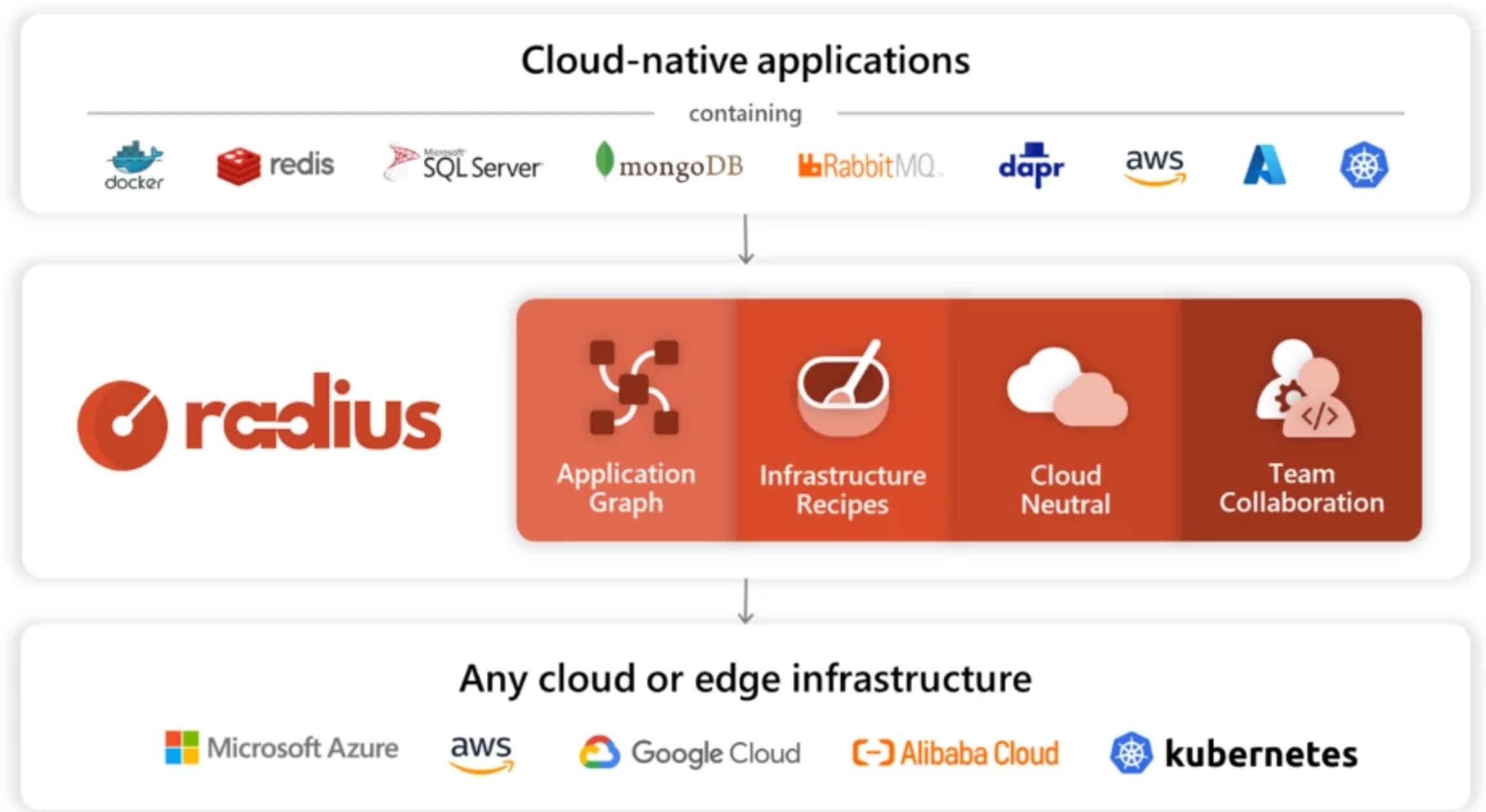Microsoft announces Radius, an open-source, cloud-native, application platform

Microsoft Azure Incubations team today announced Radius, an open-source, cloud-native, application platform. Radius will allow developers and platform engineers to collaborate on delivering and managing cloud-native applications.
In general, when it comes to cloud native applications, developers define applications and their dependencies, not the underlying infrastructure. Operators define Environments with platform configuration, infrastructure, and policies that enforce corporate requirements around cost, operations, and security. Radius cloud-native app platform brings them together, deploying applications and infrastructure that meet both developer and operator requirements.
Radius works with Dapr, simplifying Dapr configuration. Also, Radius is cloud neutral. Developers can deploy apps across development environments, on-premises infrastructure, and public clouds of choice, with a single, consistent tooling experience.
Microsoft worked with the Cloud Native Computing Foundation (CNCF) to bring Radius into the CNCF as a new CNCF project.
“Radius was designed to address these distinct but related challenges that arise across development and operations as companies continue their journey to the cloud. Radius meets application teams where they are by supporting proven technologies like Kubernetes, existing infrastructure tools including Terraform and Bicep, and by integrating with existing continuous integration and continuous delivery (CI/CD) systems like GitHub Actions,” wrote Mark Russinovich, Chief Technology Officer and Technical Fellow, Microsoft Azure.
You can learn more about Radius at radapp.io.
Read our disclosure page to find out how can you help MSPoweruser sustain the editorial team Read more




User forum
0 messages